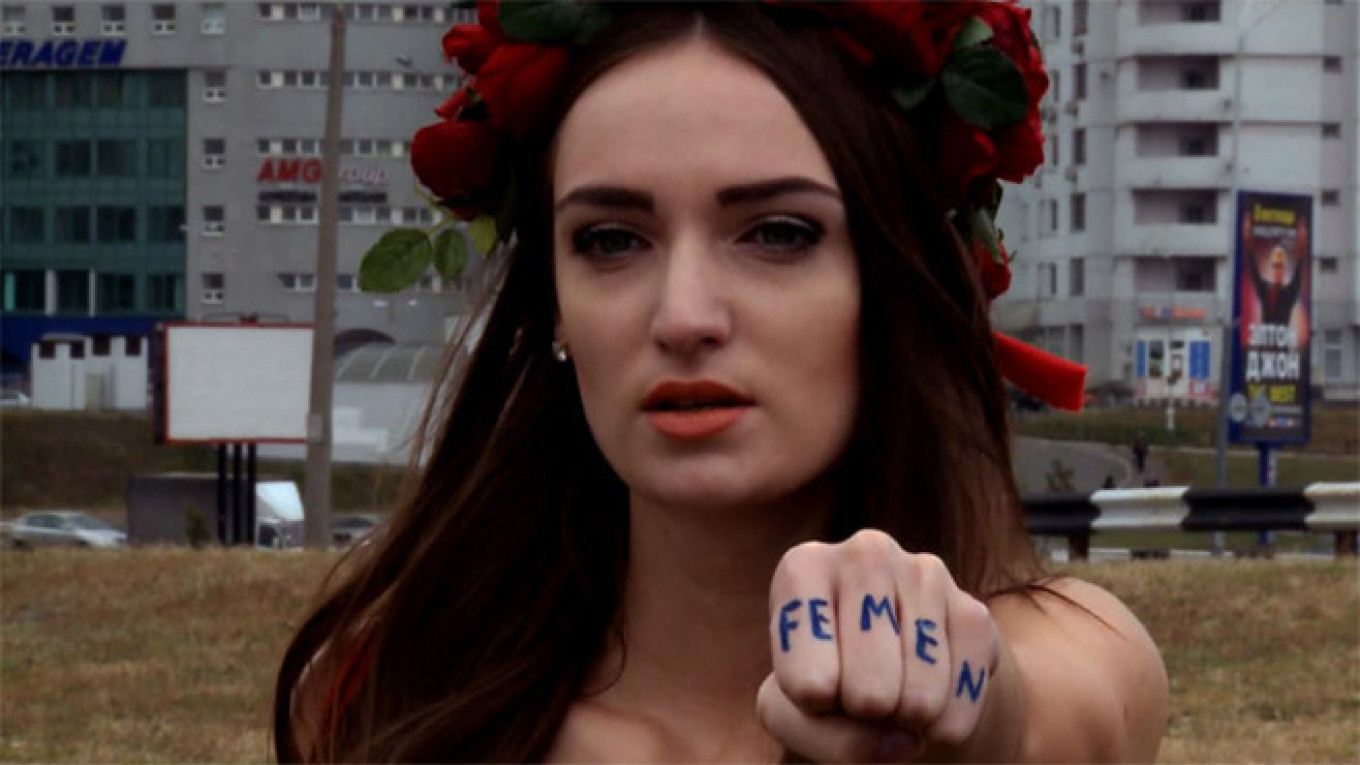ArtDocFest, Russia's premiere documentary film festival, which runs Dec. 9-17, opens amid controversy following Culture Minister Vladimir Medinsky's public refusal to grant state support for the festival for allegedly "anti-state" remarks made by its director Vitaly Mansky.
"No single project of Mansky, including ArtDocFest, will ever receive any money as long as I am a culture minister," Medinsky was quoted as saying by Interfax last month. Pro-Kremlin media followed suit, condemning Mansky for his allegedly "anti-Russian" stance.
"Bravo, Vladimir Rostislavovich [Medinsky]! We have been waiting a long time for when the state starts defending the country not only from external enemies, but from the internal nest of vipers as well," the national tabloid Komsomolskaya Pravda wrote on Nov. 24. "Medinsky made it clear: The state will no longer subsidize blatant haters of Russia."
Born in Lviv, Ukraine, the 50-year-old Mansky — an award-winning documentary director — was one of more than 200 Russian filmmakers who signed a statement against Russia's involvement in Ukraine in March. The statement was released on March 8 as a reply to a letter from Ukrainian filmmakers.
"Dear friends and colleagues! We read your letter and listened to your address with pain," they wrote in a letter that was called "We Are With You" and posted on the Russian Filmmakers Union website.
"You are right to speak of an unprecedented anti-Ukrainian campaign unleashed by Russian state channels and the people's uprising against [ousted Ukrainian President Viktor] Yanukovych's shameful regime. Like you, we are categorically against lies in covering the fateful events for Ukraine and, all the more, against Russia's military intervention in Ukraine."
Three days later, the Culture Ministry reacted with its own open letter, in which more than 500 cultural figures stated their support for the Kremlin's line regarding Ukraine.
The festival features "Euromaidan: Rough Cut," a chronicle of the three-month-long uprising of Kiev consisting of footage taken by young Ukrainian filmmakers in the heart of events.
Starting on Nov. 21, 2013, as a mainly student protest against Yanukovych's hasty deal with the Kremlin to withdraw from the planned agreement with the European Union, it became a large-scale anti-Yanukovych revolt after the young demonstrators were brutally beaten by riot police.
The other Ukrainian-themed film is "I Am Femen." Shot by Swiss director Alain Margot, it follows artist and activist Oksana Shachko, one of the founding members of the feminist art protest group Femen.
The group is notorious for its topless protests against sexism and homophobia throughout Ukraine and across Europe. Figures that the group has targeted since it formed in 2008 include Russian President Vladimir Putin and Orthodox Patriarch Kirill.
The program also includes a film called "Donetsk People's Republic," by British director Anthony Butts.
"The Invisible City" by Latvian director Viesturs Kairish is about a 30-year-old man who has been living in the Chernobyl exclusion zone for almost 10 years in a bid to find peace and escape from modern civilization.
Other films include one about a war photographer in search of people he once captured in his photographs ("Oleg Klimov: Letters to Myself" by Masha Novikova), Tajik migrant workers in a Russian village ("Visitors" by Alexei Sukhovei), a 9,200-kilometer hitchhiking journey from Moscow to Vladivostok ("Go Where I Don't Know" by Seryozha Kuznetsov), a young woman set to find a rich man in Moscow ("Sweet Life" by Taisia Reshetnikova).
Mansky admitted that he would comply with the recent legislation prohibiting obscenities by silencing the now-banned terms, which are abundant in some of the films.
The festival is scheduled to open on Tuesday, Dec. 9, with "Threshold of Fear," the last film by legendary Latvia-born documentary director Hercs Franks.
The epic documentary follows the controversial love story between Yigal Amir, sentenced to life in prison for assassinating Israeli Prime Minister Yitzhak Rabin, and Russian-born Larisa Trembovler, who first visited him in custody for humanitarian reasons.
After Franks died at the age of 87 in Jerusalem in March 2013, his film — which was 10 years in the making — was completed by Maria Kravchenko, who joined the project as co-director four years ago.
ArtDocFest runs Dec. 9-17 at Formula Kino Gorizont, 21/10 Komsomolsky Prospekt. Metro Frunzenskaya. 800-250-8025. ArtDocFest.ru.
Contact the author at [email protected]
A Message from The Moscow Times:
Dear readers,
We are facing unprecedented challenges. Russia's Prosecutor General's Office has designated The Moscow Times as an "undesirable" organization, criminalizing our work and putting our staff at risk of prosecution. This follows our earlier unjust labeling as a "foreign agent."
These actions are direct attempts to silence independent journalism in Russia. The authorities claim our work "discredits the decisions of the Russian leadership." We see things differently: we strive to provide accurate, unbiased reporting on Russia.
We, the journalists of The Moscow Times, refuse to be silenced. But to continue our work, we need your help.
Your support, no matter how small, makes a world of difference. If you can, please support us monthly starting from just $2. It's quick to set up, and every contribution makes a significant impact.
By supporting The Moscow Times, you're defending open, independent journalism in the face of repression. Thank you for standing with us.
Remind me later.


